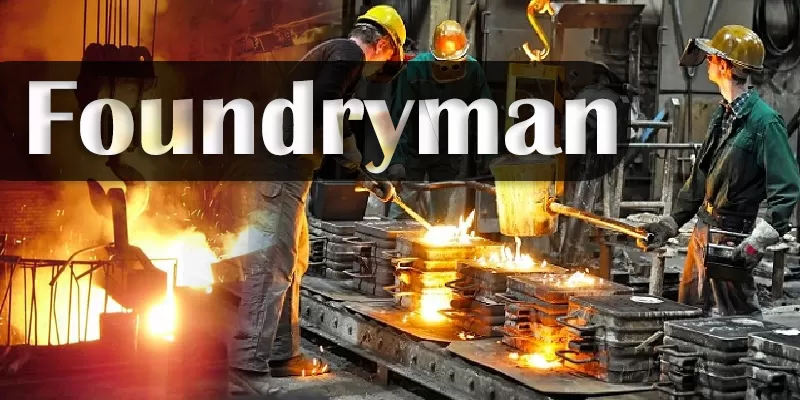
The Foundryman trade is powered by NCVT (National Council for Vocational Training). It is a highly job-oriented program, tailored to meet the workforce demands of Indian and International industries. This trade opens doors to government and private sector opportunities and is ideal for self-employment, empowering individuals with technical expertise and practical skills in the Production and Manufacturing sectors.
This program is meticulously designed to fulfill the industrial requirements of modern foundries and metal casting industries, equipping trainees with essential skills to thrive in this domain.
Career Opportunities After Completion
On successful completion of the Foundryman course, candidates can be gainfully employed as:
- Moulder
- Die Casting Machine Operator
- Core Maker
- Annealer
Trainees can find employment in production and manufacturing industries, or explore self-employment opportunities in casting and molding units.
Progression Pathway
- Eligible to join the Apprenticeship Program in different types of industries, leading to a National Apprenticeship Certificate (NAC).
- Can enroll in the Crafts Instructor Training Scheme (CITS) in the relevant trade and work as an Instructor in ITIs/Vocational Training Institutes.
- After gaining experience, candidates can pursue a Diploma in Engineering (Lateral Entry) and become a Supervisor in foundry and metalworking industries.
Trade Summary
The Foundryman course is a one-year vocational program split into two semesters, focusing on Professional Skills, Professional Knowledge, Employability Skills, and Practical Training.
Semester I
- Categorize different types of tools, equipment, and raw materials used in foundry work.
- Prepare sand mixtures for molding applications.
- Perform various sand testing procedures and analyze the results.
- Produce green sand molds using appropriate hand tools.
- Cast different metal components with various molding processes and finish the casting to specification.
- Create wooden joints, make patterns, and repair defective patterns and molding boxes.
- Prepare molds with loose piece patterns and loose piece core boxes.
- Perform metalworking tasks such as marking, sawing, filing, grinding, and drilling.
- Cast aluminum/magnesium components by melting in an induction furnace and identify casting defects.
Semester II
- Prepare molds through different molding processes, make cast iron castings, and identify casting defects.
- Make a casting, fettle it (clean and finish), and calculate yield percentage.
- Prepare a complete core by joining half cores.
- Make molds with various gating systems to produce different types of metal castings, identify defects, and participate in industrial visits to observe advanced casting operations.
- Produce extra-thick castings and complete finishing operations.
- Re-line and prepare different types of furnaces for melting metals.
- Make molds using linseed oil and ivpoils.
- Prepare molds without patterns and with sweep patterns.
- Create castings using die casting processes and evaluate yield percentages.
- Perform investment casting and binderless casting processes.
Generic Learning Outcomes
- Recognize and comply with safe working practices, environmental regulations, and housekeeping protocols.
- Understand and explain mathematics and science concepts relevant to foundry operations, including basic electrical knowledge.
- Interpret engineering drawings and apply them to foundry tasks.
- Select, measure, and record the dimensions of components accurately.
- Explain and implement concepts of productivity, quality tools, and labour welfare legislation to improve workplace efficiency.
- Contribute to energy conservation, address global warming, and minimize pollution by using resources efficiently.
- Demonstrate personal financial management, entrepreneurship, and manage/organize related tasks for personal and societal development.
Key Highlights of the Foundryman Trade
✅ Comprehensive training in moulding, core making, and casting processes
✅ Hands-on experience with modern foundry equipment and tools
✅ In-depth understanding of sand testing, metal properties, and casting defect analysis
✅ Practical exposure through industrial visits
✅ Progression opportunities to Instructor roles and Diploma programs
✅ Preparation for entrepreneurship and self-employment in the foundry sector
